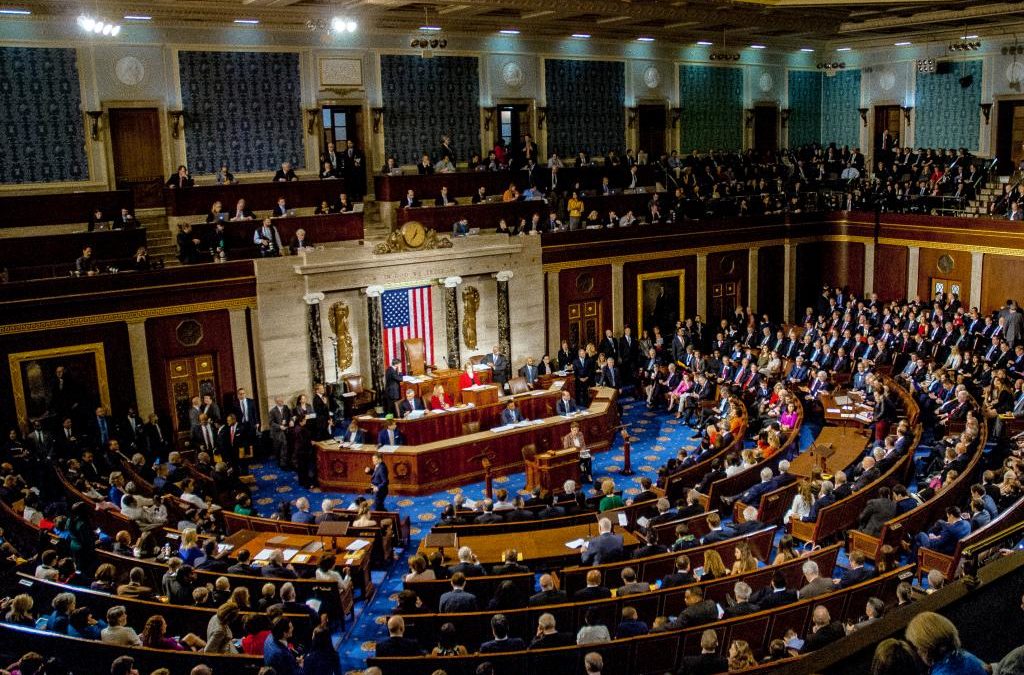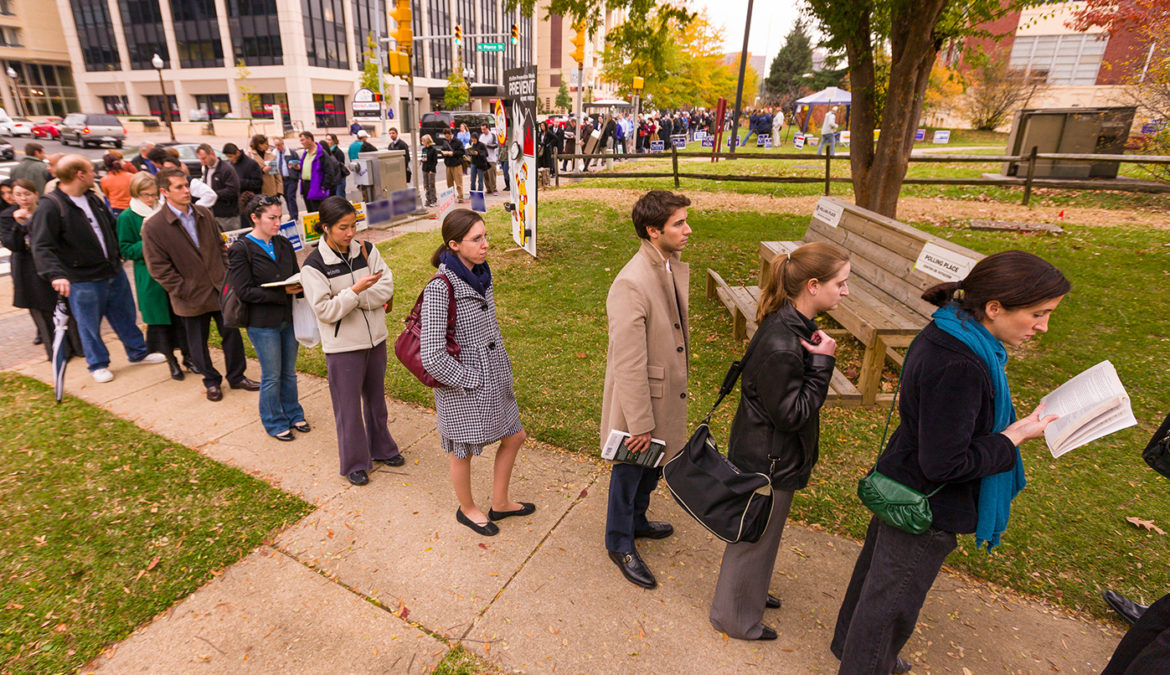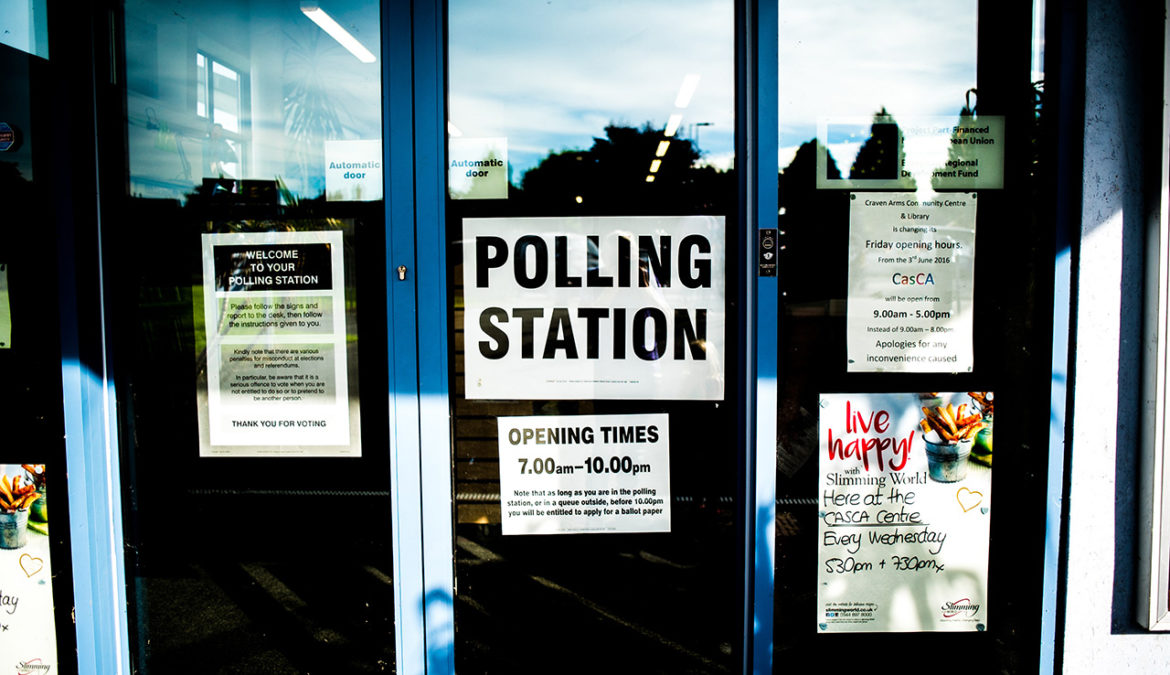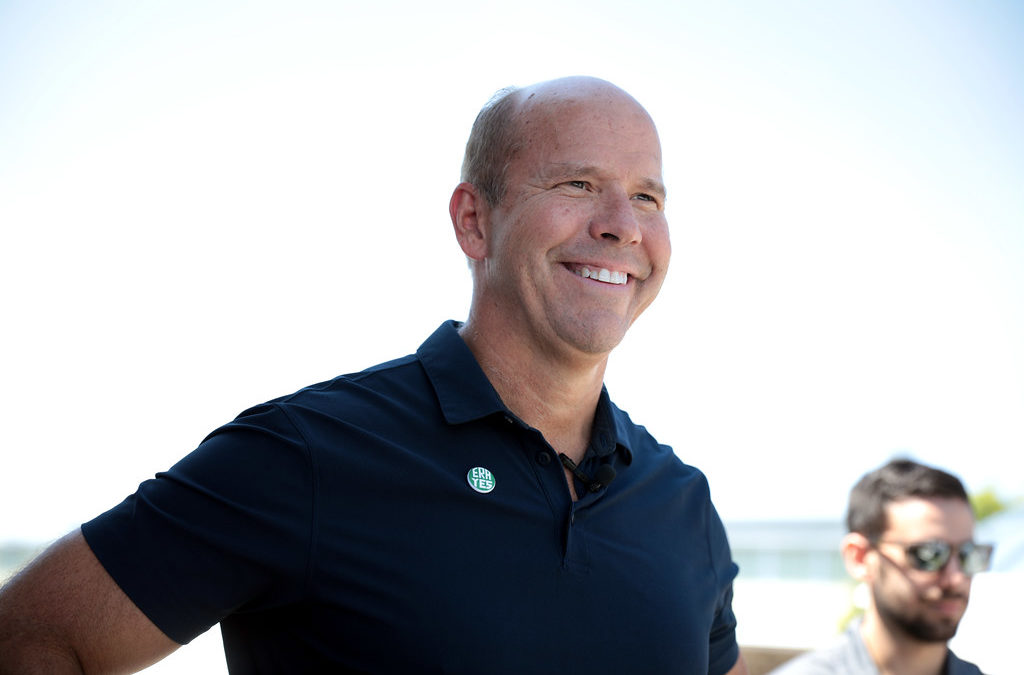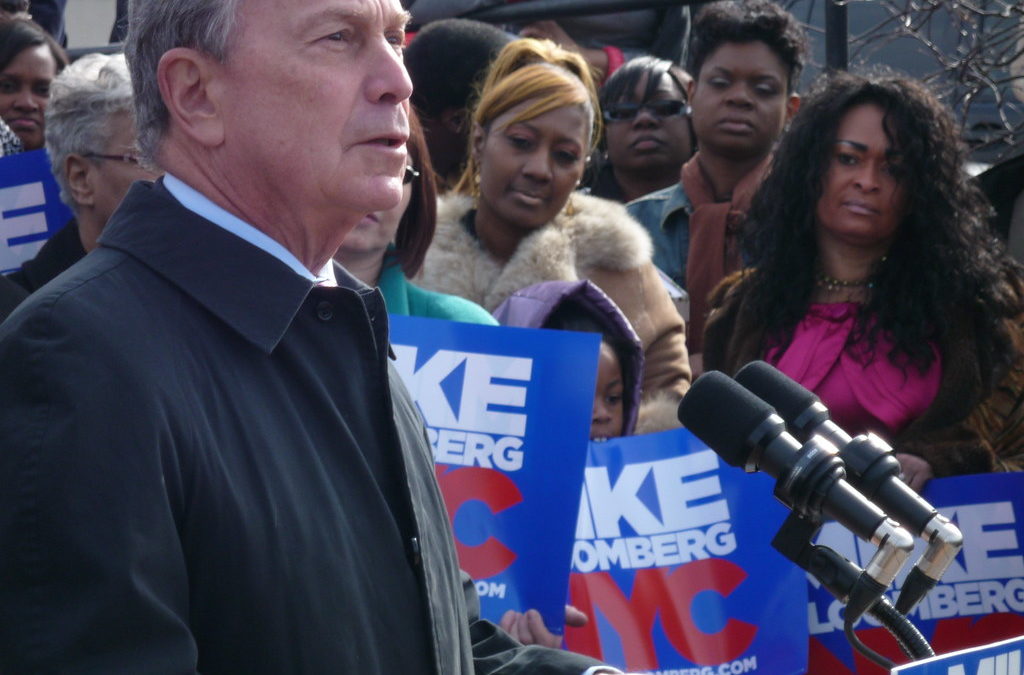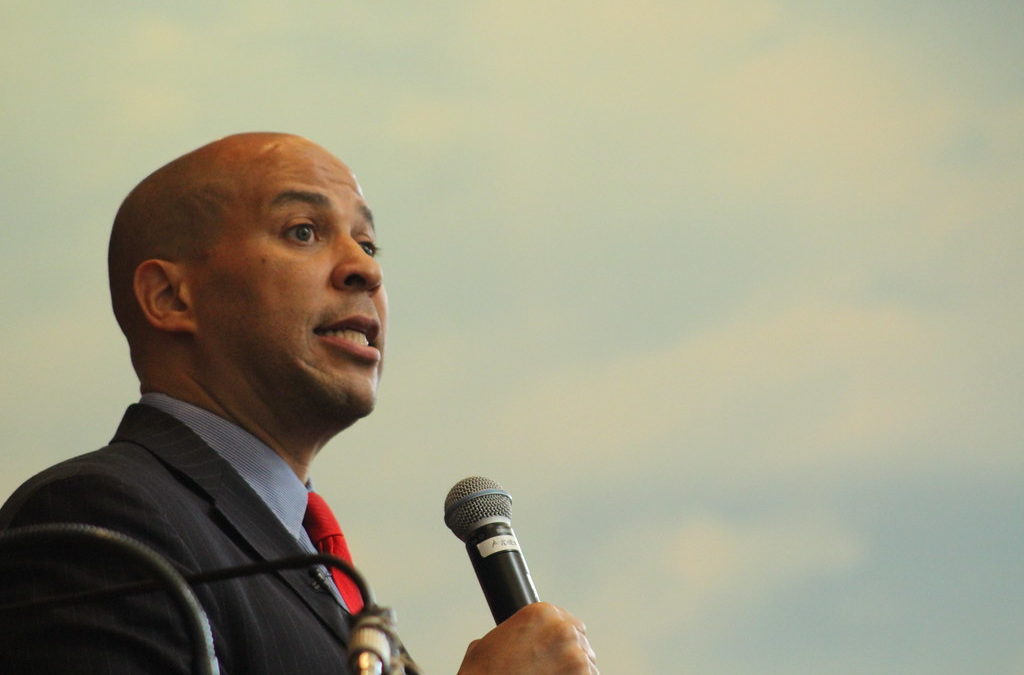The Iowa caucuses are here at last, and the latest polls show a very, very tight race in the Democratic primary, with Sen. Bernie Sanders and former Vice President Joe Biden at the front of the pack.
But this final stretch in polling before the Iowa caucuses isn’t without drama. A highly anticipated poll from J. Ann Selzer and the Des Moines Register, scheduled for release on Saturday, failed to come out after former South Bend, Indiana Mayor Pete Buttigieg complained he was left off some of the surveys.
Aside from that bungled poll, seven major Iowa polls have been released in the last two weeks, with the latest from Monmouth University, Civiqs, and Emerson College.
The Monmouth results, released last Wednesday, found Biden on top — as he has been nationally all along — with 23 percent of likely caucusgoers saying they’d support him. Still, his lead was far from comfortable. Sanders came in a close second, with 21 percent support; Buttigieg nearly tied with Sen. Elizabeth Warren for third, with 16 and 15 percent respectively; and Sen. Amy Klobuchar came in fifth with 10 percent.
The only other candidates Monmouth found to have more than 1 percent support were entrepreneurs Tom Steyer and Andrew Yang, with 4 and 3 percent support, respectively. The poll has a margin of error of 4.2 percentage points, making the deltas between candidates perhaps even more narrow than they appear.
Civiqs — which conducted an online poll, opposed to the telephone polling Monmouth did — did its polling during the same time period as Monmouth (January 23-27), but found a slightly different result.
Sanders topped Civiqs’ poll, with 24 percent support from likely caucusgoers. Warren came in second, at 19 percent; Buttigieg third, with 17 percent; Biden fourth, with 15 percent; and Klobuchar still fifth, with the backing of 11 percent of likely caucusgoers.
Yang and Steyer again topped the second tier of candidates, with pollsters recording 5 percent support for Yang and 4 percent for Steyer. The margin of error for Civiqs’ work is 4.8 percentage points, again meaning the differences in standing — at least among the top four candidates — might be closer that the results might initially suggest.
And Emerson’s telephone poll — the most recent of these three, taken from January 30 to February 2 — found Sanders to be the favorite, with 28 percent support; Biden trailed him with 21 percent. Buttigieg and Warren were again nearly tied, with 15 and 14 percent support, respectively, and Klobuchar was fifth, with 11 percent.
Yang and Steyer’s results matched Civiqs’ survey: They received 5 and 4 precent support, respectively. The poll’s margin of error is 3.3 percentage points.
Those new results are of a kind with four polls that came in during the penultimate week of January. Back then, Sanders began to emerge as a state frontrunner: An Emerson College poll put his support at 30 percent; a New York Times/Siena College poll placed him at 25 percent, and a CBS News/YouGov poll put him at 26 percent. Biden led in the fourth poll, from Suffolk University/USA Today, with 25.4 percent.
Biden was second in two of the polls led by Sanders (21 percent in Emerson’s poll, and 25 percent in the CBS survey); Buttigieg was second in the Times poll, with 18 percent support. The CBS and Suffolk polls put the former mayor in third place; the Emerson poll in fourth. Warren was fourth in every poll, except for the Emerson survey, in which she was essentially tied with Buttigieg.
If we take a look at all these in aggregate, as RealClearPolitics does in its Iowa polling average, Sanders appears poised to take Iowa, with a lead of 4 percentage points, though depending on how those votes are distributed, it’s hard to say how that will translate into the final results.
Sanders certainly has an advantage. However, it is important to remember that Iowa’s caucuses aren’t run like a regular primary, and just because a candidate gets the most votes doesn’t mean the candidate will get the most delegates, as Vox’s Andrew Prokop explained. Also, because of the way the caucuses are run, quirks in the pollsters’ models, and Iowans’ very relatable uncertainty in the eleventh hour means anything could happen.
There are a lot of factors that’ll affect Monday’s results
Much of how Monday night ends depends on the size of caucus turnout, the demographic groups that come and caucus, which candidates are caucusgoers’ second choices, and who the large number of currently undecided likely caucusgoers ultimately decide to caucus for.
Obviously, the more supporters any given candidate can get to show up for them at caucus sites across the state, the better their chances. But as of now, no one knows exactly how big (or small) the turnout will be.
State and national polls of Democrats, likely voters, and likely caucusgoers have shown an incredible degree of excitement around the 2020 primary for months — a January Quinnipiac University national poll, for instance, found 85 percent of Democratic and Democratic-leaning independent voters saying they are either “extremely” or “very” motivated to vote in the primary’s contests.
Based on this enthusiasm, pollsters have — in general — assumed a large turnout. Monmouth’s numbers, for instance, assume a night of crowds reminiscent of the 2008 primary, when around 236,000 Iowans caucused.
That may seem fairly safe, but if pollsters’ assumptions are off by just a little, the results could be strikingly different that the numbers cited above, because, as Vox’s Ella Nilsen and our former colleague Tara Golshan have explained, the winner of the caucuses is actually decided by a very small number of people:
With a field of 11 candidates, the winner could walk away having only received the support of 40,000 to 50,000 caucus-goers statewide — fewer people than live in Dubuque, Iowa. And political experts here said with five strong candidates going into caucus night, it’s still anyone’s guess who could win.
“Maybe the top candidate ends up with 20 percent, because you’ve got six strong candidates going into caucus night,” Norm Sterzenbach, a former Iowa Democratic party official said this fall. “Twenty percent could win it, that’s only 40,000-50,000 votes.”
…
“It’s a relatively small number, right? It’s the size of a sort of medium-sized town,” said David Redlawsk, a political science professor at the University of Delaware and an expert on the Iowa caucuses. “In Congressional elections, winners normally have more than 100,000 votes.”
And it’s not just how many caucusgoers turn out that will affect the results — the average age caucusgoers is also expected to have a marked effect on who is the eventual victor.
The latest polls show that should the turnout skew younger, Sanders has a marked advantage (one that Monmouth’s pollsters found unique to him — that is, caucuses with more younger voters didn’t help Warren, or say, Buttigieg as much as they did the senator from Vermont).
Turnout that skews older, however, would help Biden, who Monmouth found to have 37 percent support of those over 65 and just 7 percent support among likely caucusgoers 18-49, a group Sanders carried, with 39 percent support.
Sanders acknowledged this paradigm Saturday in Iowa, telling supporters, “We will know early on in the night if we are going to win. If voter turnout is high, we are going to win … if it is low, quite frankly, we will not.”
Monmouth’s Patrick Murray said this dynamic could make the margin of victory even narrower than Sterzenbach projected.
“A turnout swing of as few of 10,000 voters could determine who ‘wins’ the caucus if it is driven by a specific demographic group,” Murray said in a statement Wednesday.
Based on this, one could say that if Sanders manages to bring out 10,000 more young caucusgoers than expected, Iowa would be — as he predicts — his this time.
But that ignores the fact that some caucusgoers will be required to change their allegiances, a fact that seems as if it could benefit Biden as much as Sanders.
The viability standard could change everything
The caucuses are conducted in a manner that is similar to ranked-choice voting.
Iowans gather at their local precinct, and publicly declare their allegiance to their candidate by gathering in groups. This year, officials will tally those supporters using documents called presidential preference cards. Candidates who are found to have more than 15 percent support of a precinct following a count of those cards will be deemed “viable,” and their support will be locked in — that is, Iowans who caucused for them can’t change their minds.
But those who caucused for candidates who fail to meet that 15 percent threshold will be allowed to change their allegiance to one of the viable candidates. This is known as realignment.
This makes caucusgoers’ second choices important. In all three of the latest polls, Warren was the top second choice, with 19 percent of Monmouth respondents putting her second, 16 percent in the Civiqs poll, and 23.8 percent in Emerson’s.
Biden was the second most popular in two, with 16 percent of Monmouth’s poll choosing him as their number two, and 15 percent in Civiqs’ survey. Emerson’s pollsters found Klobuchar the top second choice among the top five candidates in that poll, with 18.7 percent second choice support.
But it’s important to look at where that second choice support is coming from — many polls have found that Sanders supporters overwhelmingly said Warren is their second choice. For instance, in Civiqs’ latest poll, 31 percent of Sanders backers said Warren is their second choice, more than any other group. And Emerson’s poll saw 50 percent of Sanders supporters saying Warren was their second choice.
But given recent polls, it seems likely that if Sanders fails to clear the 15 percent mark, he’ll do so in precious few precincts, meaning the majority of his caucusgoers will not be required to throw their support elsewhere. This is a reality that also affects Yang and Steyer, who find most of their second choice support coming from Sanders backers as well.
Instead, the backers of candidates like Yang, Steyer, or even Klobuchar, could make all the difference.
Emerson found Yang’s supporters split in their second choice support; assuming Sanders, Biden, Warren, Buttigieg, and Klobuchar were still viable, 30.7 percent said they’d caucus for Klobuchar; 22.4 percent said they’d go for Warren; 17.6 said they’d move to Sanders; and 14.1 percent said they’d go home.
Steyer fans were split almost evenly between Sanders, Buttigieg, and Klobuchar; and Klobuchar backers overwhelming liked Biden as their second choice, with 41.2 percent saying they’d back him, while 25.9 and 23.3 percent said they’d go to Warren and Buttigieg, respectively.
Civiqs grouped all the candidates outside of Sanders, Warren, Buttigieg, and Biden together when reporting supporters’ second choices. Respondents who are for a candidate not in this top tier split almost evenly for Warren (19 percent), Biden (19 percent), and Buttigieg (20 percent). Sanders received just 9 percent second choice support among these caucusgoers.
Klobuchar stands to gain most if Sanders and Biden don’t make the 15 percent threshold, again, something that isn’t likely to happen. She also has the greatest support among Buttigieg backers after Biden in the Civiqs poll, at 18 percent, and the most in the Emerson poll, with 30.1 percent — numbers that could serve her well in any precincts in which Buttigieg fails to meet the viability standard.
All this would suggest that any realignment boosts would likely benefit Sanders less than his chief rivals — unless there are a lot of districts where Warren misses the 15 percent cutoff, as 33 percent of Warren supporters say Sanders is their second choice.
The good news for candidates counting on realignment boosts is that most Iowans seem to have settled on a second choice. Monmouth asked who its respondents would caucus for if only the top six candidates in its poll — Biden, Sanders, Buttigieg, Warren, Klobuchar, and Yang — remained viable, and only 6 percent said they didn’t know. In Emerson’s poll, only 9 percent said they wouldn’t choose one of those five.
The bad news is timing and individual caucusgoers’ commitment to the process is a huge part of how much the realignment process will benefit viable candidates, because caucugoers can leave.
Say you caucused for Klobuchar, and she was declared nonviable in your precinct, but the night’s growing long and you need to get back to your baby. You can go without realigning your support. Essentially, it’s important to remember that realignment will change things, but it won’t affect final totals in every case, as Vox’s Andrew Prokop has explained. And even in precincts where it may appear as if it will matter a lot, it might not impact things at all.
There’s still a lot of uncertainty around first choices, too
Throughout months of polling, one thing has been constant — Iowans aren’t sure if they’ll actually caucus for their first choices.
In Selzer’s November 2019 poll, 62 percent of respondents said they could be persuaded to support someone other than their first choice. Her early January poll found that number had fallen some, but was still significant: 45 percent of likely caucusgoers.
Monmouth’s most recent work found similar results — 45 percent of likely caucusgoers said they were “open” to caucusing for a candidate other than their current first choice, with 13 percent saying there was a “high possibility” they’ll change their minds before Monday night. And some — 5 percent — said they still have no first choice.
Emerson’s pollsters found 66 percent of likely caucusgoers said they are sure to caucus for their first choice, while — and again, this poll was taken in the three days before the caucuses — 34 percent said they may still change their minds.
Recent polls have found Warren and Sanders support to be more set in stone, and Monmouth’s work appear to bear this out: 62 percent of those who identify as “very liberal” said they know for sure who they will caucus for, while only 41 percent of those identifying as “moderate” or “conservative” said the same. And 34 percent of very liberal likely caucusgoers said they could change their minds, while 50 percent of moderates and conservatives were open to switching.
This would seem to provide an opportunity for a candidate like Klobuchar to win over some last minute supporters, and it’s an opportunity she told reporters Saturday she plans to capitalize on, “We are punching way above our weight … we clearly have a surge going here.”
Also presenting an opportunity is that half of all respondents who said they are “somewhat liberal” said they would be open to changing their allegiance. That presents a situation that could benefit almost anyone given this is the most progressive slate of candidates in decades — even Biden, as Vox’s Laura McGann has pointed out, would be the most progressive president in generations.
All this makes candidates’ last minute pitches extremely important — they need to make sure they solidify the support they have, while also trying to convince people to defect, and win over those still undecided. The campaigns are all aware of this, and spent Saturday and Sunday covering the state, holding dozens of events, fending off pranksters, deploying high profile surrogates, and in Sanders’ case, holding concerts.
And Emerson’s polling suggests these final pushes are bearing fruit. For instance, 22.6 percent of Yang’s backers told the college’s pollsters they’d settled on him in the last three days — and even candidates who haven’t polled well are earning last minute supporters: 4.9 percent of those who plan to back Sen. Michael Bennet said he’d won them over in the last three days.
But who is going to win?
As Vox’s Andrew Prokop has explained, more than one candidate could “win” the caucuses given state officials will be releasing three sets of results.
One candidate could win the pre-realignment total — essentially the popular vote — another, the realigned numbers, and a third could come away with the most state delegates (a number that will help determine how many of Iowa’s 41 national delegates each candidate will receive).
Given this, and all the uncertainty and byzantine processes we went through above, it is hard to say who will come out on top in any of these three results.
But we can say who things are looking good for.
Obviously, Sanders and Biden have a fairly healthy lead in polling averages. We know that the progressive candidates have more stalwart supporters, meaning Biden’s standing many not be as strong as it appears in topline poll numbers.
We also know Warren is the popular second choice, but that a lot of her universe of support with that metric comes from Sanders supporters, who probably won’t have to realign themselves. And we know that Biden and Buttigieg also do well as second choices.
Turnout should be fairly high, something that could benefit Sanders greatly, especially if a large number of younger Iowans come out to caucus.
It’s safe to say Sanders appears to be in good stead, particularly in pre-realignment totals, but that any lead he might be able to rack up there will be threatened by the second round, in which we can expect Warren, Biden, Buttigieg — and maybe Klobuchar — to pick up more new supporters than Sanders will. Whether those gains will be enough for him to be knocked off his top spot remains to be seen.
The final state delegate count is what is usually used to determine who wins. But Iowa doesn’t have a winner-take-all system; delegates are distributed proportionately, meaning in a race that has been this close, several candidates could end up with similar numbers.
That won’t necessarily stop whoever gets the most from declaring themselves the winner — like when Hillary Clinton “won” the state by 0.25 percentage points in 2016 — but it would make it difficult for any one candidate to pick up strong momentum boost ahead of the New Hampshire primary.
And that boost is really what the caucuses are about. Iowa’s 41 national delegates represent such a small fraction of the total that former New York City Mayor Michael Bloomberg isn’t even bothering to compete in the state.
It won’t be until Super Tuesday that candidates get to compete in states with large delegate totals, with 1,344 delegates up for grabs (the first four contests in February only have 155). It’s difficult to make it to Super Tuesday without proving yourself first, however, and Iowa is a chance — for some candidates, like Klobuchar, perhaps a last chance — to do just that.
By Sean Collins [Vox]

